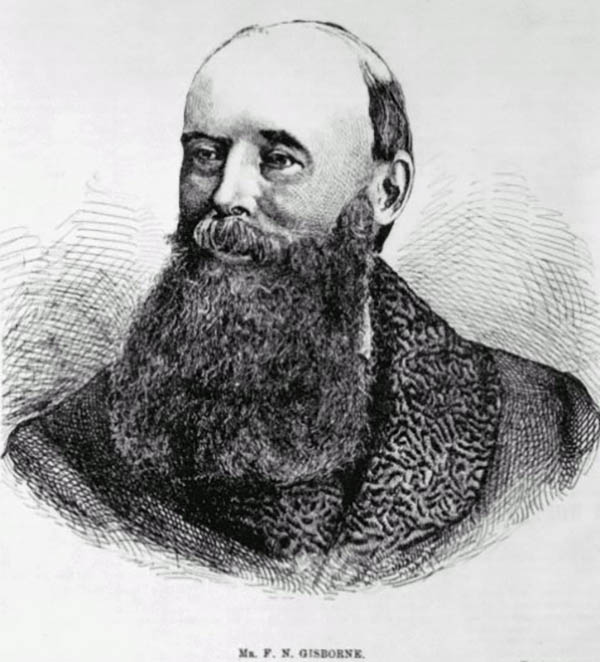
This copy is copyright protected.
Copyright © 2025 Geographicus Rare Antique Maps

Frederic Newton Gisborne (March 8, 1824 - August 30, 1892) was a British engineer, electrician, and inventor. Born in Broughton, England, he had settled in Canada by 1845 and developed an expertise in telegraphy and electricity, coming to manage the lines in Halifax and throughout Nova Scotia. He was responsible for laying the first deep-sea cable in North American waters, between Prince Edward Island and New Brunswick, in 1852. He became an associate of Cyrus W. Field, an early champion of transatlantic telegraphy, and was noted for a number of inventions that improved the operation of undersea telegraphs. Gisborne was then (in 1854) appointed chief engineer of the New York, Newfoundland and London Telegraph Company, which was founded to allow Field to acquire Gisborne’s telegraph interests and rights in Newfoundland. Though the company helped Field complete the first transatlantic cable in 1858, he and Gisborne had had a falling out in 1856 and Gisborne left the New York, Newfoundland and London Telegraph Company. Gisborne then turned his attention to mining, setting up companies (typically financed in London) to mine gold and coal in Newfoundland and Nova Scotia. Gisborne invested heavily in coal mines on Cape Breton Island from 1869, but his timing was unfortunate as the global economic depression starting in 1873 reduced demand for coal and he lost a significant amount of money. Nearly broke, Gisborne returned to telegraphy when the Canadian government offered him the job of superintendent of the dominion telegraph and signal service, a job for which he was very qualified. Following a life of dramatic ups and downs, Gisborne held this relatively quiet and stable position until his death.
Copyright © 2025 Geographicus Rare Antique Maps | Geographicus Rare Antique Maps

This copy is copyright protected.
Copyright © 2025 Geographicus Rare Antique Maps